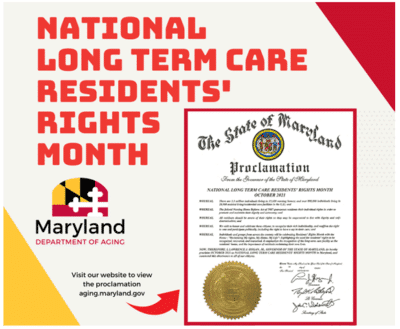
You might consider hiring an ombudsman to address any issues with long-term facilities. This professional can help to resolve any complaint. While all nursing homes must have a formal grievance process in place, residents may be hesitant to speak up about their concerns, for fear of being retaliated by staff. However, the ombudsman is able to establish trust with residents and be a confidant. The ombudsman can be seen as impartial, which means that residents are more likely to trust him or her.
Responsibilities
The Long-Term care Ombudsman assists residents, the public, and nursing homes by investigating complaints, and making changes. The ombudsman's job is to empower residents and families to make informed decisions. They are available to answer resident concerns, promote transparency and educate the community on the needs of longterm care residents.
The ombudsman acts as an impartial, volunteer advocate and investigates complaints of residents. He works together with residents, staff, government agencies and other stakeholders to improve quality care. The ombudsman provides long-term care facilities with hundreds of free consultations. The ombudsman can resolve complaints regarding admissions, transfers, or discharges.

Funding
LTC Ombudsman Program provides assistance to residents of assisted living facilities and B&C home. Its mission it to educate residents about their rights as well as improve their living situations. The ombudsman's bureau also trains staff in B&C and nursing homes on how they can handle complaints and improve the quality and care of residents. 70% of nursing homes received visits from ombudsmen in 2013, whether they were on a weekly or monthly basis. These numbers have fallen from more that half in 2003.
A number of groups and organisations have expressed concern about the insufficient funding for this program. Governor Christie has announced a study of the state's long-term care system, but the funding level is not discussed in the bill. Only half of the 1,500 state-run adult care facilities and nursing homes have Ombudsman staff. The Ombudsman budget is the only state program. Governor Cuomo however supported the program during the State of the State address. Sadly, New Yorkers continue to die in nursing homes.
Frequency
Although long-term care Ombudsmen are known to visit facilities regularly, there isn't a standard for their frequency. While the national average is 85 complaints per 1,000 beds, the average is closer to 67. The District of Columbia's range is between 14 and 743 complains per thousand beds. The study also explored the relationship between commuter distance and complaint frequency. With the exception New York, there is a consistent lower visitation rate across all states.
State-level ombudsman programs employ specially trained citizen volunteers who spend two to three hours each week advocating on behalf of residents. These volunteer Ombudsmen report to New York State Ombudsman and are responsible of helping residents in the areas they serve. They are the liaison between residents in their communities and facilities.

Access by phone
In the past, long-term residents could only contact Ombudsman by phone. You can arrange in-person visits, but they may be delayed or reduced in severity in the case if there is an outbreak. You can still call or email the Long Term Care Ombudsman to get assistance. However, keep in mind that you may have to wait two to three business days for a response.
The state long-term care ombudsman serves as an advocate and resource for the residents of LTC facilities. The office helps residents understand their rights and how to best obtain them. New York's State Office for the Aging is where the office is located. NYSOFA states that over 1,500 people are currently living in LTC units. The ombudsman assists these individuals in many ways.